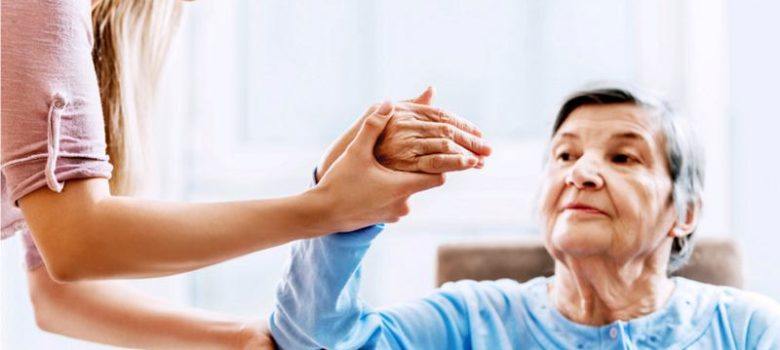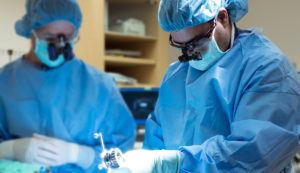

Reversing the Effects of a Stroke
by Zara Jethani
Could Stem Cell Therapy Help Brain Recovery After Stroke?
When a person suffers a stroke, millions of brain nerve cells die because of the lack of blood flow and oxygen to the brain. Stroke survivors are often plagued with motor disabilities that come after stroke such as paralysis and speech difficulties.
Brain cell death is irreversible.
But what if there is a way to reverse the severe effects caused by stroke?
In a new advanced neurosurgery clinical trial, Achal Singh Achrol, MD and Santosh Kesari, MD, PhD, are throwing down the gauntlet. With minimally invasive neurosurgical techniques, they are transplanting stem cells and using them as a source for brain cell regeneration. If successful, this kind of neuro-regeneration therapy could transform patients’ abilities and restore quality of life.
Pacific Neuroscience Institute is one of only seven comprehensive sites around the country to offer this Sunovion/Sanbio expanded multi-center phase 2b study for patients who are still experiencing chronic deficits six months to 7 1/2 years after an ischemic stroke.

The investigational stem cells, called SB623, are directly injected into the areas around the stroke in the brain, and participants are tracked for safety and functional outcomes. The injected stem cells, known as mesenchymal stem cells, are adult bone marrow-derived cells engineered to express specific nerve growth factors.
While the cells themselves do not have a long lifespan, they seem to somehow kick-start the recipient’s own brain cells into generating new neurons, possibly by reactivating neural pathways in the brain that were turned off as a result of the stroke.
As witnessed in a small phase I study at Stanford, dramatic and extraordinary results are possible. Patients with very limited movement of an arm or leg literally overnight gained the ability to raise those limbs with minimal effort and long-lasting effects.
Dr. Achrol who brought the trial to PNI from Stanford where he participated in the phase I trial says, “The phase I study was a safety study and not designed to test efficacy. However, there were patients unable to move their arms years out from a stroke who were able to lift their arms again after treatment. There were some exciting results that make us hopeful about this new therapy, and that’s why we are participating in offering the phase 2 clinical trial here to our patients.”
For more information about enrolling in this trial, please download the flyer and contact Najee Boucher at Najee.Boucher@Providence.org or 310-582-7460.
For more information about ischemic stroke, please visit pacificstroke.org.
Pacific Neuroscience Institute Foundation
Pacific Neuroscience Institute strives to find ground-breaking cures for patients suffering from neurological and cranial diseases. As part of this initiative, the PNI Foundation supports research including trials like these. Philanthropic support allows PNI researchers to continue searching for innovative cures and testing life-changing treatments that without support would not otherwise be possible.
To find out more about supporting programs at Pacific Neuroscience Institute, please contact Karter White, PNI Foundation Administrative Director at 310-829-8271.

Zara Jethani, MS, MBA, is the marketing director for the Pacific Neuroscience Institute. Her background is in graphic design, molecular genetics research and healthcare marketing.
About the Author

Zara Jethani
Zara is the marketing director at Pacific Neuroscience Institute. Her background is in molecular genetics research and healthcare marketing. In addition, she is a graphic designer with more than 20 years experience in the healthcare, education and entertainment industries.
Last updated: October 13th, 2017